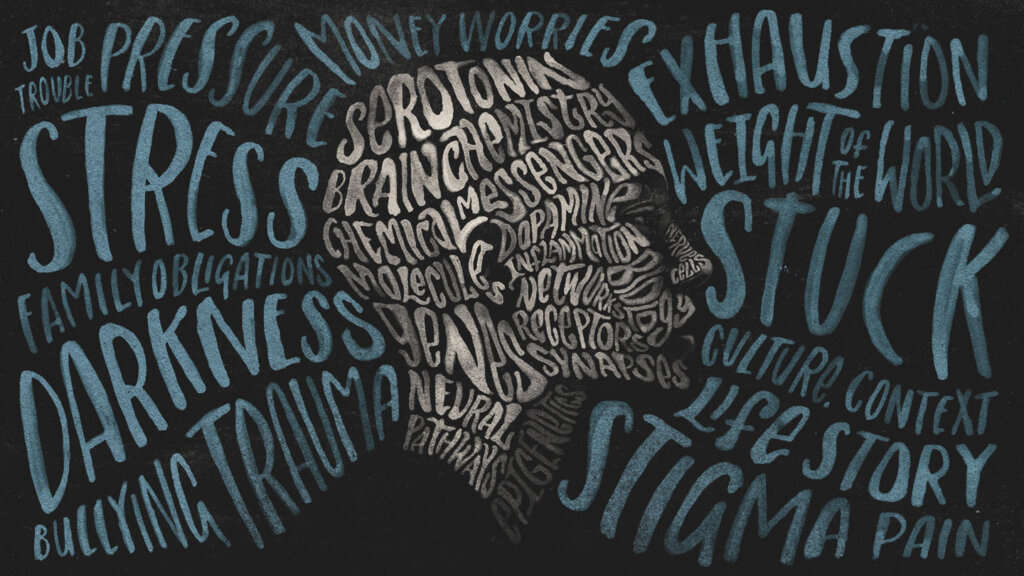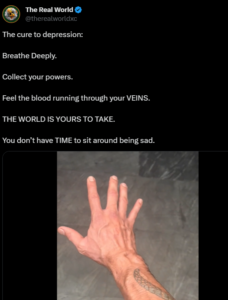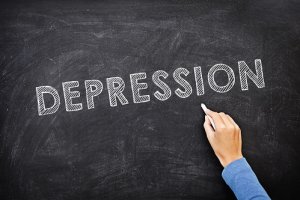
According to Bryan Boling and Nathalie Smith (2021), depression is a mood condition characterized by despair, helplessness, and worthlessness. Genetics, CNS illnesses, hormonal changes, life stressors, and inefficient coping mechanisms can influence it. It significantly impacts quality of life, increases substance misuse and suicide risk, and hinders performance. Premenstrual dysphoric disorder, major depressive disorder, persistent depressive disorder, disruptive mood dysregulation disorder, substance/medication-induced depressive disorder, and unspecified depressive disorder are some of the different types of depression listed in the DSM-5 by the American Psychiatric Association.
The Power of Prayer?
Widely accepted as a rationale for the use of antidepressants, the serotonin theory of depression postulates that a chemical imbalance is the cause of depression. The theory hasn’t received much evidence-based backing, though, and has been questioned. Many etiology reviews and textbooks, according to a study that looked at how the serotonin theory was covered in scholarly literaturebetween 1990 and 2010, strongly endorsed the theory. According to the study, there is some accountability on the part of the psychiatric community for thewidespread prescription of antidepressants that has been sparked by a theory that has little evidence-based backing (Ang et al., 2022).

Prayer and Deep Breathing are not a Reliable “Cure” for Depression!
Improving treatment for depression is essential, as it is a leading contributor to disability globally. According to the cognitive neuropsychological theory of antidepressant action, treatments reduce the negative bias in the processing of emotionally salient information, which eventually results in a marked improvement in mood. This model has potential translational value in treatment selection, response prediction, and medication development. It can also be applied to other antidepressant interventions (Godlewska & Harmer, 2020).

By: Mike Cohen
The Physical Impact of Depressive Symptoms:
Mood symptoms, somatic symptoms, and painful physical symptoms (PPS) are all linked to major depressive disorder (MDD), an 11% global psychiatric illness. Patients with MDD may have PPS, which is not listed in the DSM-5. MDD with concurrent PPS is an important field for research and management since PPS can result in severe depression, a decreased quality of life, and a poor response to treatment. Major databases such as PubMed, EMBASE, PsycINFO, and Web of Science were searched methodically for relevant literature, and data was analyzed using a random-effects model. PPS was shown to be 55.2% common in MDD patients, with a point prevalence of 64.2% and a 12-month prevalence of 57.0%, according to a meta-analysis of 20 studies. To lessen its negative effects on day-to-day functioning, PPS, a common problem among MDD patients, requires prompt treatment, regular screening, and effective prevention measures (Liu et al., 2021).

For most people, depression is a serious mood disorder that affects daily activities and necessitates treatment. Depression is influenced by genetic, biological, environmental, and psychological factors. Most people who suffer from depression need treatment to get better; it is not a sign of weakness or character flaws. While friends and family can provide emotional support, empathy, tolerance, and motivation, emotions should never be discounted. Depression is a multifaceted disorder characterized by physical symptoms like headaches, cramps, aches, stomach issues, sleep difficulties, and exhaustion. Depression can be treated with medication, psychotherapy, or a combination of both, with antidepressants being commonly used, but individual responses may vary (National Institute of Mental Health, 2020).
Depression isn’t just something you can snap out of and that it also doesn’t just consist of sad feelings, but also physical ailments that can affect everyday life. There is not a magical cure because it is a real medical condition and not just feelings of sadness that prayer can fix!
References:
Ang, B., Horowitz, M., & Moncrieff, J. (2022). Is the chemical imbalance an ‘urban legend’? An exploration of the status of the serotonin theory of depression in the scientific literature. SSM – Mental Health, 2, 100098. https://doi.org/10.1016/j.ssmmh.2022.100098.
Depression: an Overview. Boling B; Hanson D; CINAHL Nursing Guide, EBSCO Publishing, 2021 Jun 18 (Quick Lesson – CEU) Godlewska, B. R., & Harmer, C. J. (2020). Cognitive neuropsychological theory of antidepressant action: a modern-day approach to depression and its treatment. Psychopharmacology, 238(5), 1265–1278. https://doi.org/10.1007/s00213-019-05448-0. Gregory Dickow. (2020, February 7). God’s #1 Remedy For Depression and Anxiety | Pastor Gregory Dickow [Video]. YouTube. https://www.youtube.com/watch?v=UD0tnoDgC-8 Liu, Z., Jin, Y., Rao, W., Zhang, Q., Zhang, J., Jackson, T., Su, Z., & Xiang, Y. T. (2021). The prevalence of painful physical symptoms in major depressive disorder: A systematic review and meta-analysis of observational studies. Progress in NeuroPsychopharmacology and Biological Psychiatry, 111, 110372. https://doi.org/10.1016/j.pnpbp.2021.110372. National Institute of Mental Health. (2020). Depression in Women: 5 Things You Should Know: Vol. NIH Publication No. 20-MH-4779. U.S. Department of Health and Human Services, National Institutes of Health.

Hi Mike. Great blog post! Your post was very informative about the myths of curing depression. It was great how you talked about the power and prayer and how that does not cure depression in the long run. I was not aware about PPS and its toll on people with depression. Your blog was simple and to the point which made digesting the information much more easy.